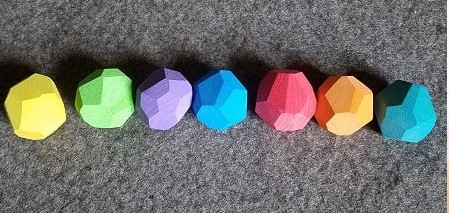Watch
Events
Articles
Market
More
It is NOT the most wonderful time of the year ;)
https://afflicted4messiah.word....press.com/2023/11/11
#christmas #facts #torahtok



? Shabbat Music Video Live Stream Playing Now ☕
https://rumble.com/v3v3758-aro....mem-shabbat-music-vi



Good Morning Tribe ?☕
https://rumble.com/v2vcv1n-he-....who-holds-almighty-p



Shabbat shalom! We're talking about predestination and free will today! 1pm Central. Zoom info on our home page!
https://firstcenturychristianity.net/



Le droit au repos et le sens de la vie sont étroitement liés, reflétant l'intention divine, DIEU ayant délibérément entrelacé ces deux concepts:
1. Équilibre travail / loisirs: "Six jours tu travailleras, mais le septième jour tu te reposeras". Le privilège du repos fut établit dès le début de la création et est régule l'équilibre entre vie professionnelle et vie privée, qui met l'accent sur la nécessité pour les individus de disposer de suffisamment pour leurs loisirs, leur famille et leurs activités personnelles en dehors du travail. Lorsque les gens ont la possibilité de se reposer et de s'adonner à des activités qu'ils aiment, cela améliore leur satisfaction globale à l'égard de la vie même professionnelle, et contribue à un sentiment de signification et d'épanouissement.
2. Le droit au repos est un droit divin : "le septième jour est un sabbat pour YHWH, ton DIEU, auquel tu ne dois faire aucun travail - ni toi, ni ton fils ou ta fille, ni ton serviteur ou servante ou bétail, ni l'étranger dans ton portes." D'un point de vue sociétal, YHWH garantit le droit au repos à tous les êtres humains (ainsi qu'à toute sa création), préservant ainsi le bien-être général et la qualité de vie, créant un environnement propice à l'émancipation, au bonheur et à la liberté. Le droit au repos et aux loisirs est un aspect important des droits humains fondamentaux. C'est pourquoi la Déclaration universelle des droits de l'homme (article 24) et le Pacte international relatif aux droits économiques, sociaux et culturels (article 7) reconnaissent explicitement le droit aux loisirs, englobant les activités de repos, de loisirs, de plaisir, de détente, d'épanouissement personnel, et l'interaction sociale. En adoptant ce concept, les sociétés défendent le droit divin à la dignité humaine et condamnent toute forme de traitement cruel ou dégradant.
3. Récupération physique et mentale : "Ce sera une guérison pour votre corps et un rafraîchissement pour vos os." - Proverbes 3:8. Le repos est essentiel pour que le corps récupère et se répare. Pendant le repos, le corps peut reconstituer ses réserves d'énergie, réparer les tissus et guérir d'un effort physique ou d'une blessure. Il est particulièrement important de prévenir le surmenage et d'améliorer les performances. En effet, des activités physiques, mentales ou cognitives continues peuvent entraîner de l'épuisement, une prise de décision altérée et un risque accru de sévices. Faire une pause de sa labeur le 7ème jour de la semaine, et s'engager dans des activités reposantes, telles que les loisirs, les passe-temps ou la méditation (étudier et prier), peut soulager la fatigue mentale, réduire le stress et améliorer le bien-être général. Le repos permet au corps et à l'esprit de retrouver ses fonctions optimales.
4. Une source de nourriture spirituelle : "" Testons et examinons nos voies, et revenons à YHWH " - Lamentations 3:40. Le repos offre une opportunité de nourriture spirituelle et permet l'introspection. Le repos peut permettre aux individus d'explorer leurs dimensions spirituelles ou de s'engager dans des activités contemplatives. Pratiquer régulièrement des pratiques spirituelles le jour du Shabbat favorise un sentiment de paix intérieure, de spiritualité et d'harmonie. Notre rabbin de Galilée suivait les pratiques spirituelles de silence et de solitude pour se reposer de la foule. "A l'aube, Yéhüshö sortit dans un lieu solitaire." Lc 4:42 "Alors, parce que tant de gens allaient et venaient, [Yehushö] leur dit: "Venez seuls avec moi dans un endroit tranquille et reposez-vous." - Mc 6:31.
En effet, le repos permet de s'éloigner des exigences de la vie quotidienne et d'examiner les questions plus profondes concernant l'existence, les valeurs de la vie et leurs objectifs.
5. Le Shabbat, un temps d'étude : « Selon sa coutume, il entra dans la synagogue le jour du sabbat, et se leva pour lire. - Lc 4:42 Le repos offre un espace sacré aux individus pour se plonger dans l'étude des livres saints, devenant un catalyseur de créativité et d'inspiration. Le jour du repos permet de nous libérer un temps précieux pour nous consacrer à la lecture, approfondir la compréhension des textes et affiner sa doctrine. Ce temps de repos dédié à YHWH sert de nourriture spirituelle, à l'étude, à la croissance personnelle, et à un meilleur établissement de liens avec les cieux et avec les autres.
6. Bien-être personnel et réduction du stress : "Ne soyez pas anxieux, mais en tout, par la prière et la pétition, avec action de grâces, présentez vos requêtes à DIEU." - Phil 4:6. Le repos et les loisirs sont des éléments essentiels d'une vie équilibrée et heureuse. Prendre du temps pour se reposer permet aux individus de se ressourcer, de se ressourcer, de réduire le stress et de maintenir leur bien-être général. Le repos joue un rôle crucial dans la gestion du stress, car le stress physique et émotionnel chronique peut avoir des effets néfastes sur la santé physique et mentale. S'engager dans des activités reposantes, telles que la relaxation, des exercices physiques modérés, la lecture, la prière, passer du temps dans la nature ou avec les gens qu'on aime, peut activer la réponse de relaxation du corps, réduire les hormones de stress et favoriser la guérison. En se souvenant et en observant régulièrement le Shabbat de YHWH, on en ressort avec un sentiment de calme et d'équilibre profond.
7. Shabbat Shalom à tous !




Victor 529
Delete Comment
Are you sure that you want to delete this comment ?
Rhy Bezuidenhout
Delete Comment
Are you sure that you want to delete this comment ?